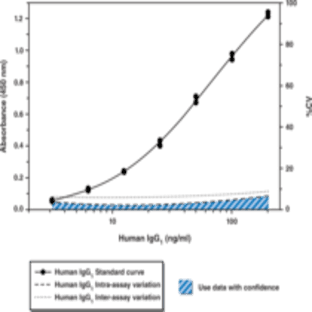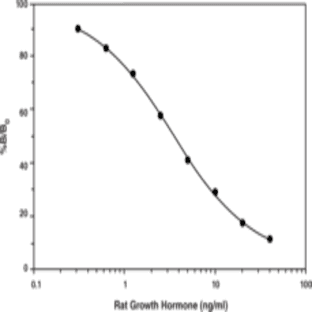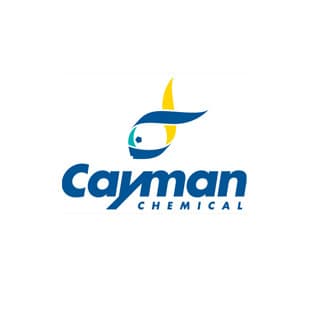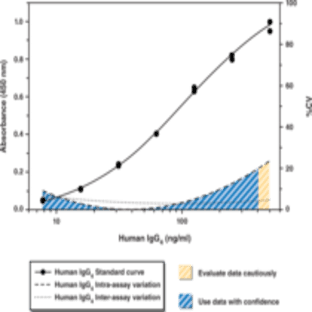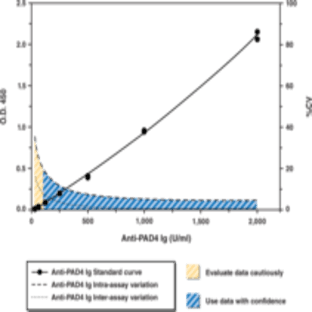
Supplier:
Cayman Chemical CompanyCat no: 10007819
SREBP-2 Transcription Factor Assay Kit
Prices direct from Cayman Chemical Company
Quick response times
Exclusive Biosave savings/discounts
SPECIFICATIONS
Catalog Number
10007819
Form
96 Well
P Type
Assay Kits|Intracellular Signaling
Weight
0
Storage Temp
-80
Shipping Temp
-80
Additional Info
Lipid homeostasis in vertebrate cells is regulated by a family of transcription factors called sterol regulatory element-binding proteins (SREBP's). SREBP's directly activate the expression of over 30 genes involved in the synthesis and uptake of cholesterol, fatty acids, triglycerides, and phospholipids. Three different SREBP isoforms designated SREBP-1a, SREBP-1c, and SREBP-2 are encoded by two different genes and belong to the basic helix-loop-helix-leucine zipper (bHLH-ZIP) family of transcription factors. SREBP-2 performs a critical role in the transcriptional regulation of genes involved in cholesterol synthesis and uptake including HMG-CoA synthase, HMG-CoA reductase, and the LDL receptor. Cayman's SREBP-2 Transcription Factor Assay is a non-radioactive, sensitive method for detecting specific transcription factor DNA binding activity in nuclear extracts and whole cell lysates. A 96 well enzyme-linked immunosorbent assay (ELISA) replaces the cumbersome radioactive electrophoretic mobility shift assay (EMSA). A specific double stranded DNA (dsDNA) sequence containing the SREBP response element is immobilized to the wells of a 96 well plate. SREBP contained in a nuclear extract, binds specifically to the SREBP response element. SREBP is detected by addition of specific primary antibody directed against SREBP. A secondary antibody conjugated to HRP is added to provide a sensitive colorimetric readout at 450 nm.
Applications
ELISA, IF, IP, WB
Hosts
Rabbit
Applications
ELISA, IP, WB
Hosts
Rabbit
Latest promotions
Spend less time on DNA cleanup so you can do more science. The MSB Spin PCRapace is the fastest way to purify your DNA from PCR, restriction digestion, and...
New brilliant antibodies, and new lower prices!For flow cytometry reagents in general, \"bright is better.\" The violet-excitable BD Horizon™ BV421 and...
As an incentive to qualify our BSA, we are offering a 20% discount when you purchase your first 100g, 500g or 1000g of any grade of Bovine Serum Albumin....
It is not every day that you are given something for nothing. We are giving away additional spectrophotometer software.Cecil Instruments have enhanced the...
10% Discount on 2 Rabbit Polyclonal Antibody Service. With over 20 years experience, SDIX has developed into the premier US custom antibody producer,...
We're so sure that you'll prefer Cayman Assay kits over your present brand that we're willing to give you a free assay kit to prove it!
For the past decade scientists have extensively used ATS secondary toxin conjugates to make their own targeted toxins for in vitro use.The ability to combine...
Did your supplier increase the price of Fetal Bovine Serum? Did they substitute the US Origin with USDA? Well say no more! Innovative Research is still...
Bulk Cytokines with Custom Vialing.20 - 50% off cytokines, growth factors, chemokines and more...For a limited time Cell Sciences is offering substantial...
Are you planning to have a customised antibody made for your research?Since 2000, Everest has been producing a catalog containing thousands of affinity...
Jenway’s 73 series spectrophotometer range provides four models with a narrow spectral bandwidth of 5nm and an absorbance range of –0.3 to 2.5A,...
Top suppliers
United States Biological
230753 products
Carl Zeiss Microscopy
27 products
Promega Corporation
11 products
Panasonic Healthcare Company
5 products
Life Technologies
1 products
Nikon Instruments Europe
11 products
Olympus Europa Holding GmbH
3 products
Leica Microsystems, Inc.
10 products
GE Healthcare Life Sciences
2 products
Tecan Trading AG
19 products
Beckman Coulter, Inc.
1 products
AB SCIEX
3 products
BD (Becton, Dickinson and Company)
1 products
RANDOX TOXICOLOGY
5 products
Randox Food Diagnostics
6 products










